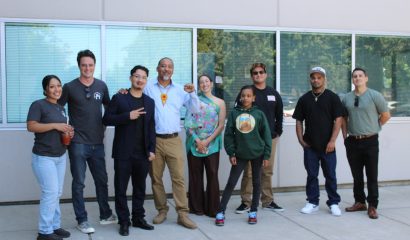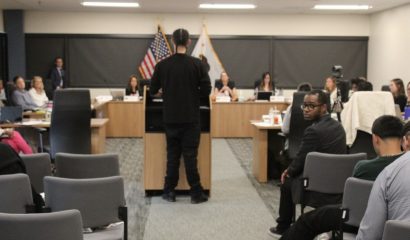Below you will find our newsletter with some of our summer highlights. In this issue: CJCJ Media Highlights, Youth Coach-Ups for State Meetings, Technical Assistance Support in Kings County investigation, and CJCJ’s Employee Spotlight: Grecia Reséndez.
CJCJ Media Spotlights for our Work and Reporting
CJCJ has been in the media lately! Here are a few of recent highlights. With the closure of California’s Division of Juvenile Justice (DJJ), there has been much conversation around the history of the abusive state institution. The focus is now to ensure county facilities do not replicate the same harms experienced by youth at the state level. Our local NPR station, KQED invited CJCJ to discuss this history and a new path forward.
Thank you to KQED’s Forum and host Marisa Lagos for her segment, California State Youth Detention Facilities Are Closed. What Happens to Incarcerated Youth Now? The program highlighted concerns across the state as youth are returning home from DJJ having experienced violence and abuse, all while under state watch and care. Our executive director, Daniel Macallair was a guest, as was one of our longtime partners, deputy director of the California Alliance for Youth and Community Justice (CAYCJ), Israel Villa.
Together, they highlighted 132 years of state sanctioned abuse to youth and the critical need for rehabilitative approaches at the county level. While one flawed state system is shut down, there are 58 counties at risk of repeating the same punitive approaches. You can read more about the segment and give it a listen via our website here. Thank you to Israel Villa for joining, your voice is integral to these conversations.
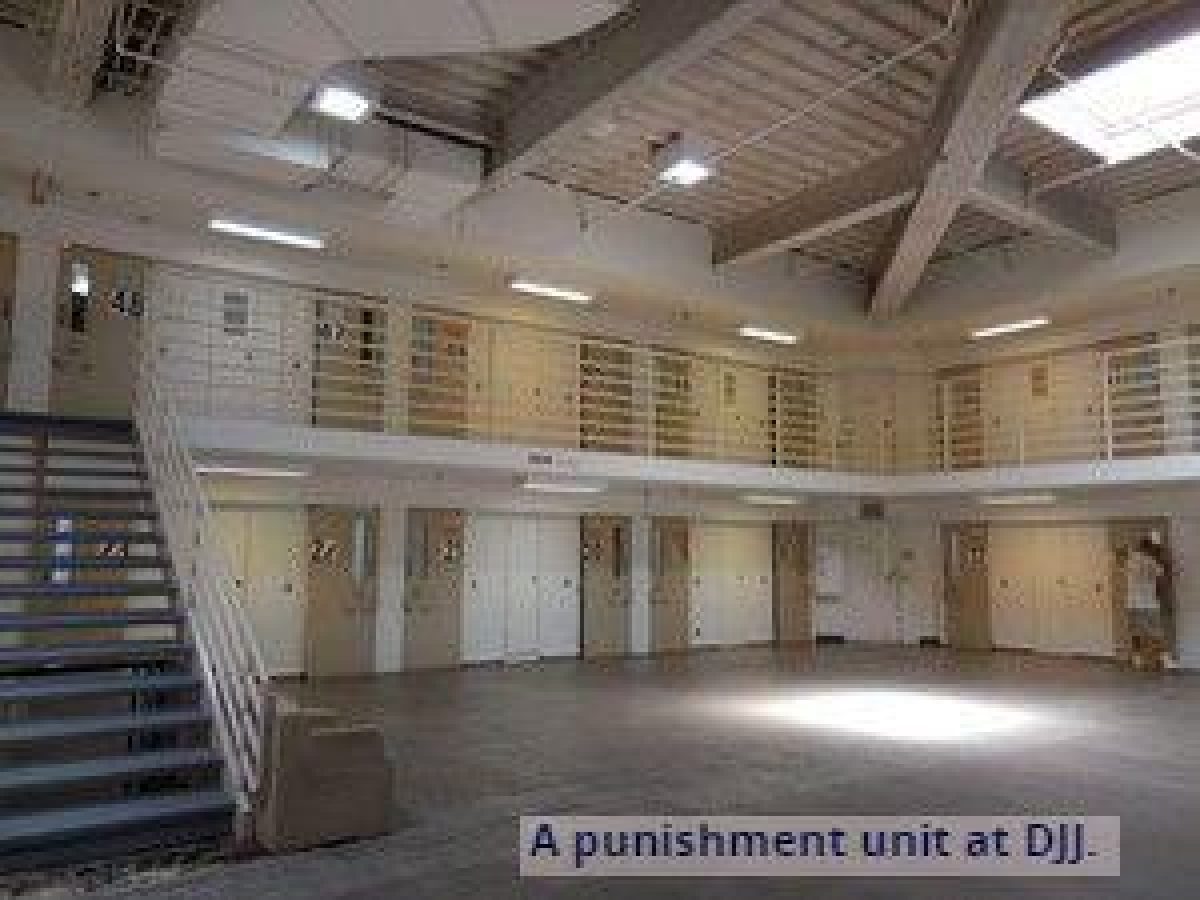
Cameo House has also been in the news lately for its incredible work. Our program, its participants, and the community was recently showcased on KTVU’s Fox2 through a series that highlighted successful approaches to keeping families together in the San Francisco area. CJCJ’s Cameo House is a critical gender-responsive residential alternative sentencing program for justice-involved, single, homeless, pregnant, and/or parenting women and children in San Francisco. The program provides on-site case management, a safe and stable living environment, and an array of supportive services tailored to each individual participant. KTVU’s Fox 2 focused for two-days on our program and its community partners. We are proud of our featured participants, Heather L. Colby and Tiara Hewitt, for the work they have done, and continue to do, to build better lives for themselves and their families. We are all made better by these efforts. Our Cameo House program manager and strong community advocate Rebecca Jackson was also interviewed for this segment. You can find links to both days of their reporting on Cameo House here.

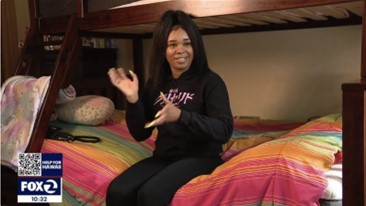
Photos show Heather Colbert and daughter, and Tiara Hewitt, originally aired 8-14-2023 and 8−15−202
You can learn more about our Cameo House program, as well as other CJCJ programming in the San Francisco area here.
Youth Coach-Ups and Prep for Public Comment at State Meetings

CJCJ was proud to support our Northern California partners at recent coach-ups in Sacramento and Oakland which prepared young people for public comment and engagement with meetings at the Board of State and Community Corrections (BSCC) in Sacramento, CA. A huge thank you to our partner organizations, Communities United for Restorative Youth Justice Justice (CURYJ) and Fresh Lifelines for Youth (FLY) for your work on the ground and across the state.
The BSCC is a powerful state agency that oversees how jail and county-level juvenile facilities are run in California. They are currently revising the minimum standards that determine how California juvenile facilities will look and operate, as well as every aspect of life for the youth in these facilities. This can be from the food they eat to the education they receive, or the kind of weapons officers are allowed to use against youth and how long they have for programming or visitation. These regulations affect the the daily lives of our state’s most vulnerable youth, and are even more urgent in light of current concerns and conditions in juvenile halls across the state.
Youth coach-ups are a place where young leaders can learn the landscape of this powerful state agency. They can then begin to understand themselves and their experiences in relation to the state institutions and decision makers that impact their lives and futures. These are also safe spaces where youth can begin to craft their pubic comments and start to practice the important tool of speaking truth to power to affect change. Advocates from across California gave public comment in person and via Zoom throughout the day long meetings. Thank you to all who, organized, attended and supported, especially all the youth who spoke! Their bravery and willingness to not only be a part of, but to take lead is inspiring to witness. They are who we should be listening to.
Photos show youth coach-ups in Oakland and advocates at the BSCC in Sacramento.
BSCC meetings regarding juvenile and adult title regulations, as well as the creation of secure youth treatment facilities and other topics regarding programming, mental health services, and more happen semi-regularly. You can email CJCJ Policy Analyst Nancy Juarez with questions you might have, or to sign up to get involved. She can be reached at nancy@cjcj.org
Our YouTube channel has videos of public comment at the last few meetings. We will continue to update them. Also, please follow us on Instagram! We post photos, videos, and other information related to our work and juvenile justice in California.
CJCJ Gives Technical Assistance on Investigation into Kings County Juvenile Center
In September of this year, Disability Rights California (DRC) and Disability Rights Advocates (DRA) released their report, Youth in Crisis: How Kings County Locks Up Youth with Disabilities, on conditions in the Kings County Juvenile Center. CJCJ partnered with DRC and DRA on this investigation. CJCJ’s Technical Assistance team analyzed publicly available data, reviewed Kings County documents obtained through DRC and DRA’s investigation, toured the facility, and conducted interviews with Probation Department staff and incarcerated youth in Kings County facilities.
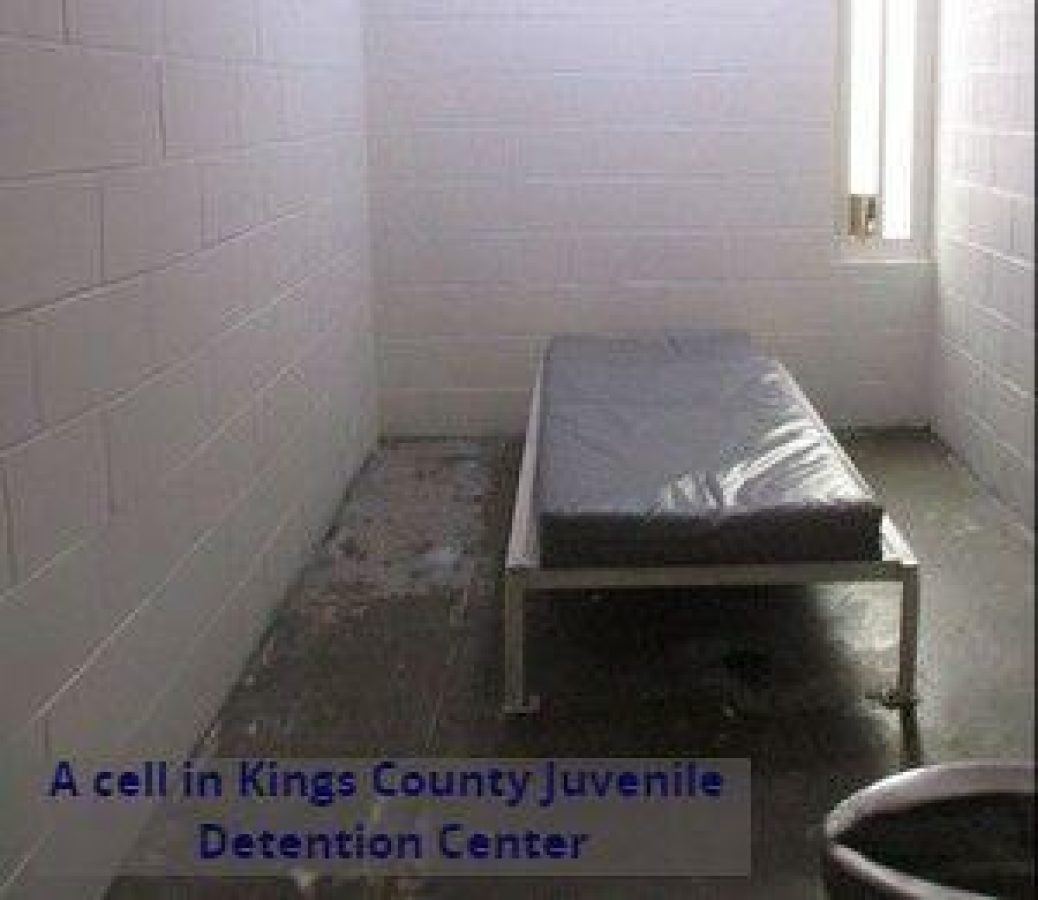
From inadequate mental health care to punitive practices and abusive isolation tactics, Kings County, like other counties across the state, is replicating the abhorrent, illegal conditions seen in California’s now-closed Division of Juvenile Justice (DJJ). County and state officials must take action to protect young people being held in these conditions.
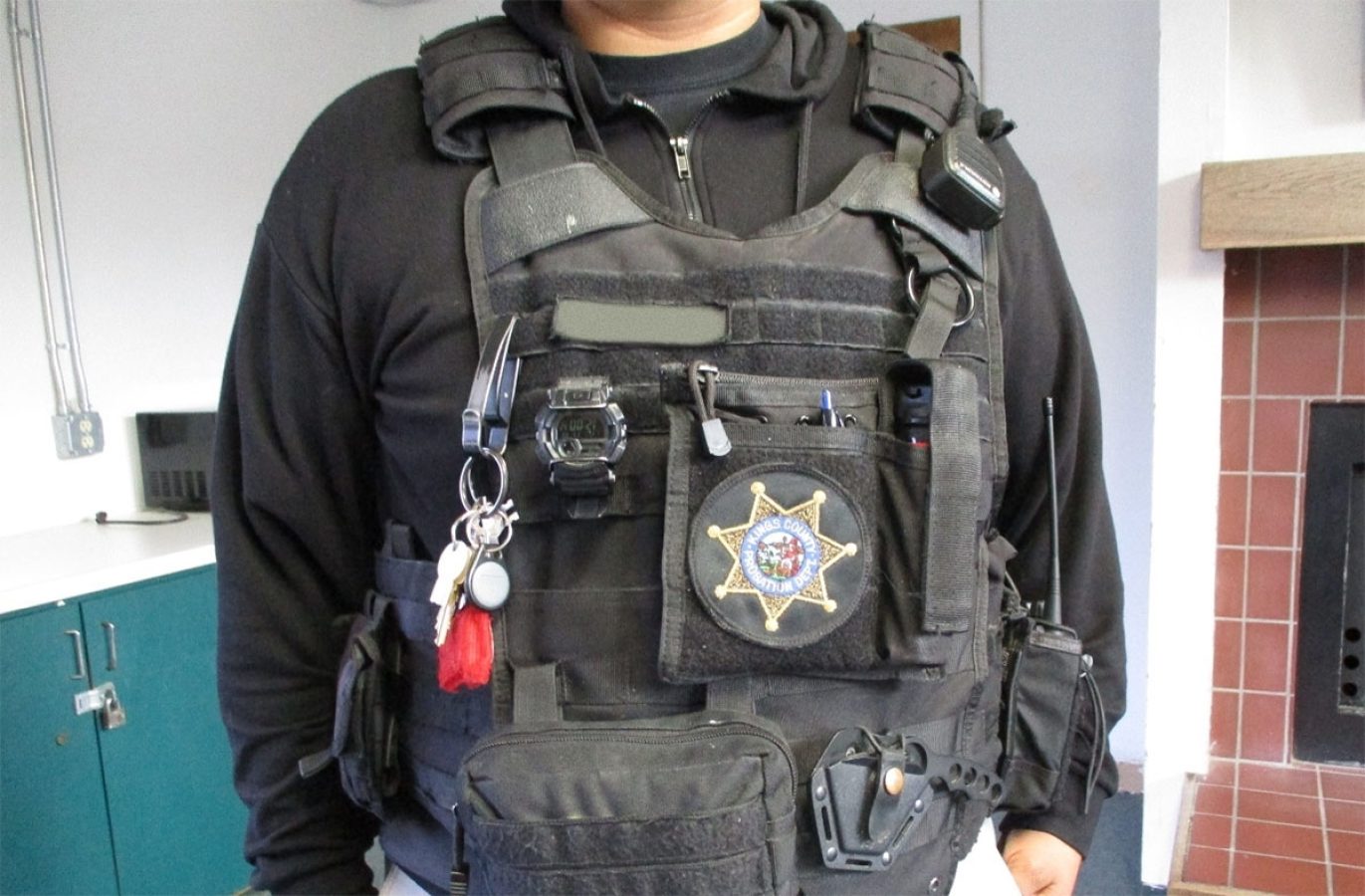
Photos are of a cell at Kings County Juvenile Center and a juvenile hall staff member wearing tactical gear. Photos are from the report release by the DRC and DRA.
You can find the link to the report below. To learn more of our Technical Assistance services, you can visit our website.
CJCJ Employee Highlight: Policy Analyst, Grecia Reséndez
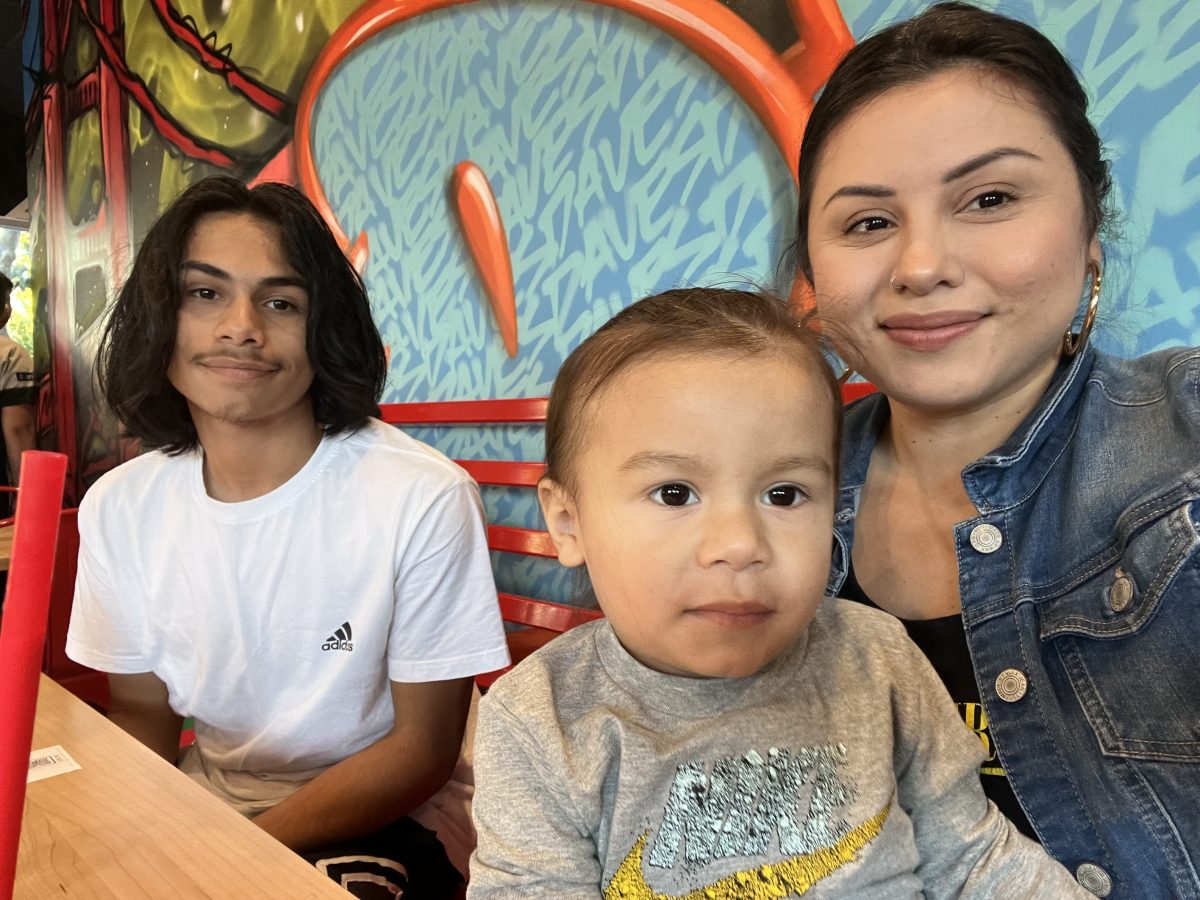
Our policy and communications team works through advocacy and reporting, public education efforts, and leadership development to help transform community safety. Their work and reports inform policy makers, journalists, researchers, practitioners, and the public about how to upend the cycle of incarceration. Below you will hear from our Policy Analyst Grecia Reséndez on how she sees and describes her work.
Name & PGP: Grecia (she/her)
Job Title: I work on the Policy and Communications team as a Policy Analyst.
Behind the scenes fact about you: I love to cook and host! Cooking is a passion of mine that has helped keep me connected with my ancestral roots. Being able to bring joy to others by sharing my food makes me happy. To that end I will randomly throw gatherings at my house, as an excuse to see my friends and cook for them. I can cook many traditional northern Mexican dishes, but in my family I am most known for my salsas and my barbacoa recipe. And while I will share all my recipes, I will not share my barbacoa recipe. This recipe is sacred to me because it is one that I created with my son so it holds a different place in my heart, it’s a tradition we started that I hope one day he’ll pass on to his kin.
How would you describe your job to a friend? I read a lot, do research, write reports, take positions on legislation, and collaborate with organizations across the state regarding criminal justice reform. Overall, I try to bridge storytelling with data, because I believe personal stories are what truly connect us.
Why is this work important to you? Because it is personal to me. Seeing how the carceral system impacted me and my loved ones has sparked a fire in me: La digna rabia, or rather dignified rage. Where our collective anger connects us and as a result we organize, making our anger not simply lead to frustration but a dignified anger that fuels us.
Dreaming out loud: If you were given unlimited funds to build out part of your program, what would you create and why? What would I not create is the question! I would expand our team, we would have 5 – 10 researchers to put out publications, reports and make our data collection accessible to others via our website…yes we’d have a data portal created where people could compare and analyze data across the nation. This team would also focus on building out our storytelling project by offering in-person interviews across the state to those who were confined in DJJ.
We would also have a large communications team that would work on pushing out our reports, crime narrative, important legislation, and making data more accessible by creating content on multiple platforms (think of CJCJ on TikTok YouTube, and short videos to pair with our written reports). Our communications team would also offer training and resource workshops to partners on best practices and narrative building. And lastly, we would have a team dedicated to legislation.
Want to learn more about our Policy and Communications team and their work? You can learn more about them here on our website.
